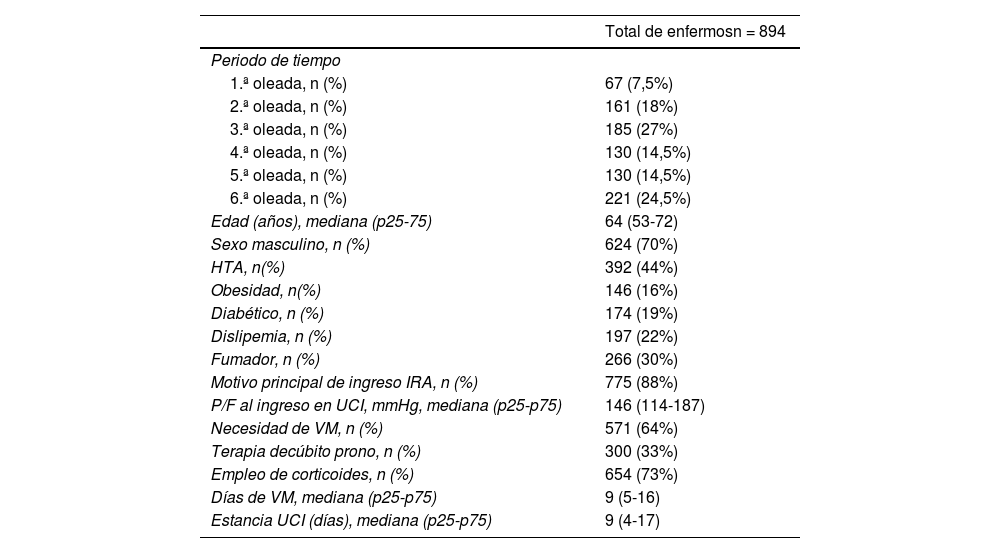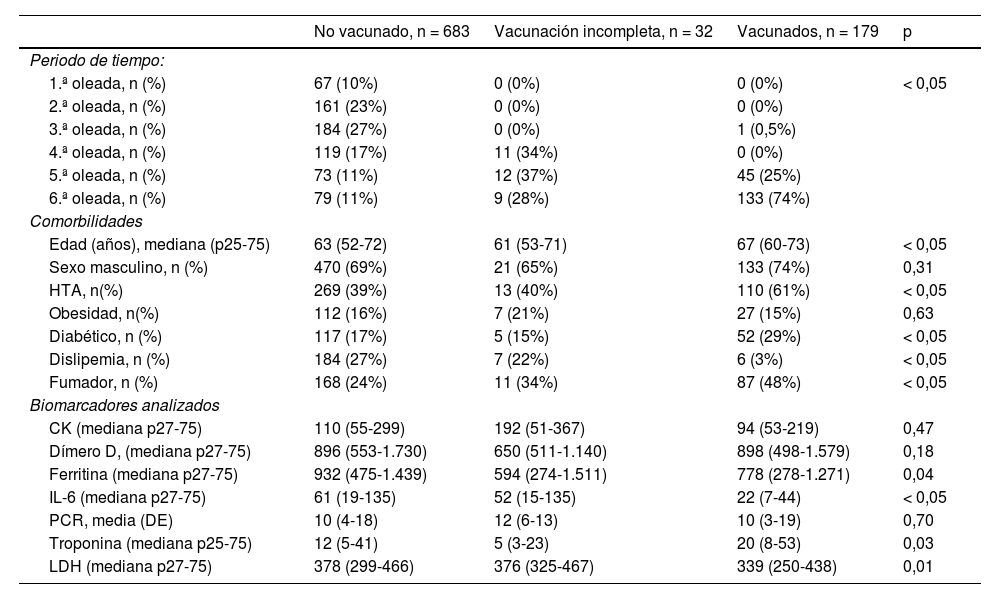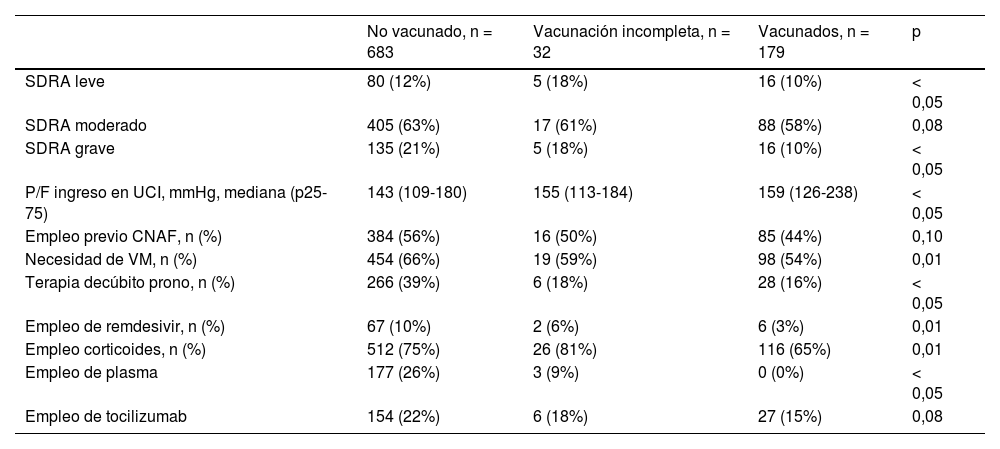Planteamos nuestro trabajo con el objetivo de comparar las características clínico-epidemiológicas, la estancia en la UCI y la mortalidad de pacientes con COVID-19 que ingresaron en la UCI con vacunación completa, incompleta o sin vacunar.
Pacientes y métodosEstudio retrospectivo de cohortes (marzo 2020-marzo 2022). Los pacientes fueron clasificados en pacientes no vacunados, pauta de vacunación completa y pauta de vacunación incompleta. Se realizó inicialmente un análisis descriptivo de la muestra, un análisis multivariable de la supervivencia ajustando un modelo de regresión de Cox y un análisis de supervivencia a 90 días con el método de Kaplan-Meier para la variable de tiempo de muerte.
ResultadosFueron analizados los 894 pacientes: 179 con una pauta de vacunación completa, 32 con una pauta incompleta y 683 no estaban vacunados. Los enfermos vacunados presentaron con menor frecuencia (10 vs. 21% y 18%) un SDRA grave. La curva de supervivencia no presentó diferencias en la probabilidad de sobrevivir a los 90 días entre los grupos estudiados (p = 0,898). En el análisis de regresión de COX, únicamente la necesidad de VM durante el ingreso y el valor de LDH (por unidad de medida) en las primeras 24 h de ingreso se asociaron de forma significativa con la mortalidad a los 90 días (HR: 5,78; IC 95%: 1,36-24,48); p = 0,01 y HR: 1,01; IC 95%: 1,00-1,02; p = 0,03, respectivamente.
ConclusionesLos pacientes vacunados frente a la COVID-19 con enfermedad grave por SARS-CoV-2 presentan unas tasas de SDRA grave y de VM menores que las de aquellos pacientes no vacunados.
Our study aims to compare the clinical and epidemiological characteristics, length of stay in the ICU, and mortality rates of COVID-19 patients admitted to the ICU who are fully vaccinated, partially vaccinated, or unvaccinated.
Patients and methodsRetrospective cohort study (March 2020-March 2022). Patients were classified into unvaccinated, fully vaccinated, and partially vaccinated groups. We initially performed a descriptive analysis of the sample, a multivariable survival analysis adjusting for a Cox regression model, and a 90-day survival analysis using the Kaplan-Meier method for the death time variable.
ResultsA total of 894 patients were analyzed: 179 with full vaccination, 32 with incomplete vaccination, and 683 were unvaccinated. Vaccinated patients had a lower incidence (10% vs. 21% and 18%) of severe ARDS. The survival curve did not show any differences in the probability of surviving for 90 days among the studied groups (p = 0.898). In the Cox regression analysis, only the need for mechanical ventilation during admission and the value of LDH (per unit of measurement) in the first 24 hours of admission were significantly associated with mortality at 90 days (HR: 5.78; 95% CI: 1.36-24.48); p = 0.01 and HR: 1.01; 95% CI: 1.00-1.02; p = 0.03, respectively.
ConclusionsPatients with severe SARS-CoV-2 disease who are vaccinated against COVID-19 have a lower incidence of severe ARDS and mechanical ventilation than unvaccinated patients.











